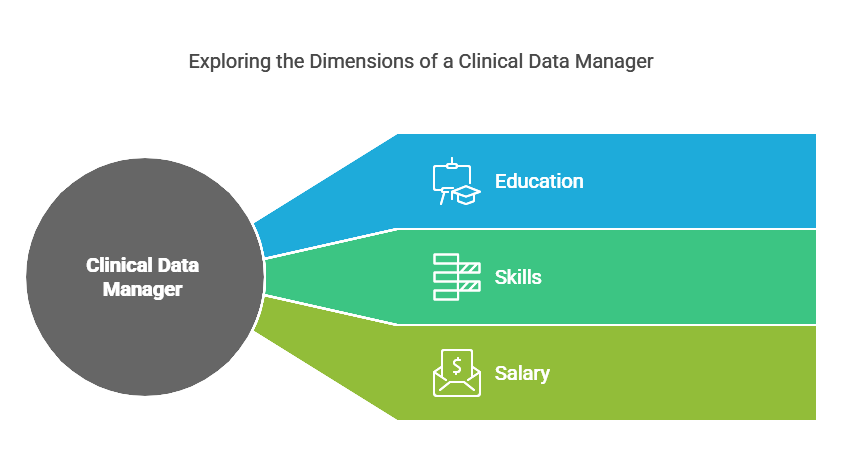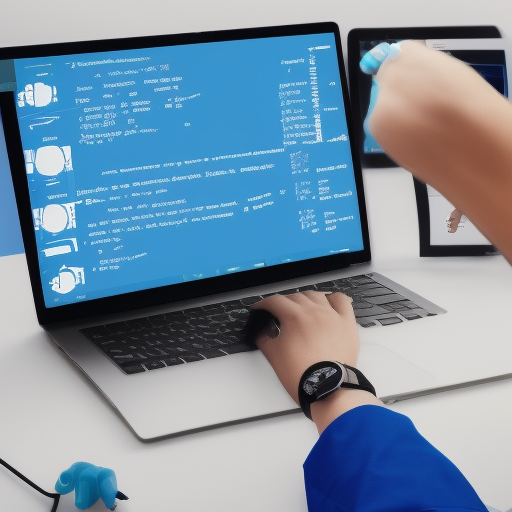What Is A Clinical Data Manager?
What is a clinical data manager?
A clinical data manager is a key person in clinical data management (CDM is the abbreviation of medical) in the management and organization of data in clinical trials. They guarantee that all the information is accurately gathered, put away, and analyzed in order to help research about medical products such as medical devices, pharmaceuticals, IVDs, and treatments.
It also assists in determining the efficacy and adverse effects of such products before they are marketed to the public. The Data Manager job includes working with doctors, researchers, and regulatory teams to ensure that data is in line with the approved guidelines laid down by the Institutional Review Board (IRB) and regulatory bodies. If you are interested in the field, then enrolling in the Clinical Research Coordinator course could be a good start.
The clinical data manager is in charge of the accuracy and completion of the clinical trial data. They collect, validate and analyze clinical trial information using technological software and tools. They also assist in the identification of the best data collection methods for each study. Of importance in making sure that research results are reliable and useful for regulatory approvals is this role. If you wish to enhance your skills in clinical data management, the ICH-GCP course provides training on standards for handling clinical trial data from an international perspective.
Requirements For Data Managers
To become a clinical data manager, education and technical skills are required. This role is vital in clinical data management (CDM with full-form medical) to ensure accuracy of clinical trial data. Knowledge of data collection, accounting and technology is important. Please keep reading to find out the key education and skills required for this career.
Education
The educational pathway for a clinical data manager is built around acquiring a strong and relevant background that equips them with the knowledge necessary for managing and analyzing data from clinical trials. Here's a more detailed explanation of the educational components essential for success in this role:
Degrees in Relevant Fields
Biological Sciences: A degree in biological sciences prepares an individual with a fundamental understanding of biological systems, human physiology, and pathology, which are crucial when dealing with clinical trial data that often involves new medical treatments or interventions.
Statistics: Statistical knowledge is paramount in clinical data management. A degree in statistics provides the tools to analyze complex datasets and interpret the efficacy and safety of treatments being tested in clinical trials.
Physical Sciences: Degrees in the physical sciences, such as chemistry or physics, contribute to a broader understanding of the scientific principles that underpin many of the methodologies used in clinical research.
Data Management: Specializing in data management or obtaining a degree in informatics or similar fields prepares one for the technical aspects of managing large sets of data, ensuring data integrity, and understanding data storage and retrieval systems critical in clinical trials.
Specialized Courses and Training
Clinical Data Collection and Management: Courses specifically designed to teach the methods of clinical data collection and the management thereof are essential. These courses cover best practices in how to handle, store, and backup data to ensure it remains uncorrupted and secure.
Clinical Protocols: Understanding clinical protocols involves learning about the design and implementation of clinical trials, including compliance with regulatory requirements and ethical considerations. This is crucial for ensuring that the trials are not only effective but also meet all necessary standards.
Statistical Analysis: This involves courses that focus on the statistical methods used in the analysis of clinical data. These skills are necessary to determine the significance of data, which in turn affects decision-making regarding the safety and efficacy of a pharmaceutical or medical device being tested.
Certification Programs
Many professionals opt to enhance their credentials through certification programs that offer specialized training in areas like Good Clinical Practice (GCP), regulatory compliance, and the latest technologies and software used in clinical data management. These certifications can be crucial in staying competitive and knowledgeable in a rapidly evolving field.
Development of Essential Skills
Problem-Solving Skills: The ability to identify and solve issues as they arise during the data management process is vital. Problem-solving skills are necessary to ensure that data collection continues smoothly and that any anomalies or errors are addressed promptly.
Analytical Skills: Strong analytical skills help in making sense of large volumes of data, drawing conclusions from it, and supporting the ongoing needs of clinical research projects.
Skills
The skill set required for a clinical data manager is comprehensive and multifaceted, addressing various aspects of leadership, technical proficiency, and meticulousness. Below is a detailed explanation of each of these critical skills:
Leadership and Team Management
Leading Teams: Clinical data managers often lead teams that include data entry personnel, analysts, and sometimes other clinical staff. Leadership skills are crucial for coordinating team efforts, ensuring that team members are motivated, focused, and working efficiently towards common objectives.
Training Staff: Part of a clinical data manager's responsibility is to train new staff on project-specific data management plans, protocols, and systems. Effective training ensures that the team is competent and performs consistently, adhering to the required standards and protocols.
Organizational and Attention to Detail
Data Management Plans: Developing and maintaining comprehensive data management plans is a core task. These plans outline how data will be handled, processed, and analyzed. It requires a high level of organizational skill to ensure that every aspect of data handling is planned out and nothing is overlooked.
Attention to Detail: The nature of clinical trials demands a high degree of accuracy. Data managers must have an exceptional eye for detail to ensure data integrity — this means carefully checking data inputs, managing corrections, and continuously monitoring for inconsistencies or errors in data collection and processing.
Technical Skills
Electronic Data Capture (EDC) Systems: Proficiency in using EDC systems is essential for modern clinical data management. EDC systems are specialized software used to collect, store, and manage data during clinical trials. Familiarity with these systems allows for efficient and secure handling of clinical data.
Computer Skills: Beyond EDC systems, clinical data managers need to be proficient with various software and tools, including database management systems, statistical software, and possibly programming languages relevant to data analysis and handling.
Problem-Solving Abilities
Clinical trials can present unexpected challenges, such as data discrepancies, logistical issues in data collection, or technical problems with data storage systems. Problem-solving skills are critical for quickly identifying and resolving these issues to prevent any impact on the trial's progress or the integrity of the data collected.
Communication Skills
Interdepartmental Coordination: Effective communication skills are crucial as data managers frequently collaborate with other departments, including clinical operations, regulatory affairs, and biostatistics. They must clearly communicate data management plans and needs, ensuring all teams are aligned with the trial's requirements and compliance standards.
Regulatory Compliance: Ensuring that all collected data meets regulatory standards is a key responsibility. This involves not only an understanding of these standards but also the ability to communicate and enforce compliance across all levels of the project team.
Continuous Improvement
The field of clinical data management is always evolving, influenced by technological advances, regulatory changes, and new methodologies. A successful clinical data manager must be committed to ongoing learning and improvement in their technical and managerial skills to stay effective and relevant in their role.
Salary
The salary for a clinical data manager reflects the crucial role they play in the clinical research industry, with an average annual compensation of $111,679. However, various factors can influence this salary, including the individual's level of experience, the geographical location, and the specific sector within the healthcare industry where they are employed. Here’s a deeper exploration of these variables:
Experience
As with many professions, experience significantly impacts salary. Entry-level data managers might start with a lower salary, but as they gain experience and take on more responsibilities, their compensation typically increases. Senior data managers or those with specialized skills in high-demand areas of data management may command higher salaries.
Location
Salaries can vary greatly depending on the location. In regions with a high cost of living, such as major metropolitan areas, salaries are generally higher to compensate. Conversely, in areas with a lower cost of living, salaries might be lower. Additionally, global differences mean that clinical data managers in countries with a strong pharmaceutical or biotechnology presence, like the United States or Switzerland, might earn more than their counterparts in other regions.
Industry
Clinical data managers can find employment in various settings, each offering different salary scales:
Pharmaceutical Companies: Typically offer some of the highest salaries due to the large scale and profitability of the industry.
Biotechnology Firms: While similar to pharmaceuticals, biotech firms, depending on their size and stage of development, might offer varying salary levels.
Medical Device Companies: These companies also require rigorous clinical trial management, and salaries here are competitive with those in the pharmaceutical and biotech sectors.
Clinical Research Organizations (CROs): CROs manage clinical trials for a variety of clients and may offer a range of salaries depending on the complexity and number of projects they handle.
Public Institutions: Universities, government research institutes, and public hospitals might offer lower salaries compared to the private sector but can provide other benefits such as more stable working hours and additional academic opportunities.
Job Role Value
The role of a clinical data manager is highly valued in the medical research field due to their expertise in managing the integrity and accuracy of clinical trial data, which is pivotal for gaining regulatory approvals and ensuring patient safety. Their skills in handling complex datasets and ensuring compliance with regulatory standards make them indispensable in the development of new medical treatments and interventions.
Career Opportunities
For those interested in pursuing this career, opportunities continue to grow as the demand for new medical treatments and interventions expands. Job seekers are encouraged to look for vacancies in specialized job portals, industry conferences, and company websites, which often list opportunities geared towards clinical data management professionals.
Conclusion
A career as a clinical data manager offers a unique blend of challenges and rewards, with salaries reflecting the critical importance of the role in the healthcare and research sectors. Factors such as experience, location, and industry significantly influence earning potential. Those interested in advancing their career in clinical data management can benefit from specialized training and certification to enhance their skills and marketability. Institutions like the Clinical Research Fastrack (CCRPS) provide valuable certifications and courses that are specifically designed to help professionals meet the evolving demands of the field, ensuring they are well-equipped to manage complex clinical data effectively and efficiently.
Explore Courses for Clinical Research Career
Courses Available:















